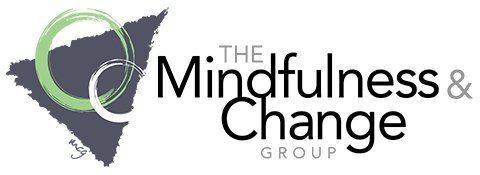Navigating Mood Disorders: The Role of Support Groups in Boston
Mood disorders, such as depression and bipolar disorder, affect millions of individuals, influencing their emotions, behaviors, and overall quality of life. While professional therapy and medication are primary treatments for mood disorders, support groups offer valuable community-based support. In Boston, a variety of support groups provide resources, camaraderie, and understanding.
Understanding Mood Disorders
Mood disorders encompass a range of conditions characterized by significant disturbances in a person’s mood and emotional state. The most common types include:
Major Depressive Disorder: Persistent sadness and a lack of interest or pleasure in previously enjoyed activities.
Bipolar Disorder: Extreme mood swings, including emotional highs (mania or hypomania) and lows (depression).
These disorders can disrupt daily functioning, with treatment typically involing medication, psychotherapy, and lifestyle adjustments (Kessler et al., 2005).
The Importance of Support Groups
Support groups provide a platform for individuals with mood disorders to meet others facing similar challenges. These groups can be an invaluable resource, offering emotional support, education, coping strategies, and a sense of belonging. Benefits include:
Shared Experiences: Engaging with others who understand first-hand the challenges of living with a mood disorder can reduce feelings of isolation and stigma (Pfeiffer et al., 2011).
Peer Support: Members offer each other encouragement and understanding, which can be empowering and reaffirming.
Resource Sharing: Support groups often provide information about local resources, such as therapists, psychiatric services, and holistic care options.
Skill Building: Many groups facilitate discussions on strategies to manage symptoms, navigate relationships, and maintain wellness.
Support Groups in Boston
Boston hosts a wide range of support groups tailored to individuals with mood disorders, facilitated by various organizations:
National Alliance on Mental Illness (NAMI) Boston: NAMI offers support groups for individuals with mental illness and their families, providing a structured environment to discuss experiences and coping strategies (NAMI Boston, 2023).
Depression and Bipolar Support Alliance (DBSA) Boston: DBSA hosts regular meetings where individuals can share experiences and support each other in a non-judgmental space (DBSA Boston, 2023).
Boston Area Depression and Bipolar Support Alliance: This group specifically supports those dealing with depression and bipolar disorder, emphasizing peer-led support and recovery education.
Mindfulness & Change Group (MCG): In addition to these well-established organizations, the Mindfulness & Change Group (MCG) offers a unique approach to group support. MCG provides specialized therapy groups that can support individuals dealing with various mood disorders. Before joining a group, each prospective member undergoes a 1-2 session intake with the group therapist. This intake process ensures that the group setting aligns with the individual's therapeutic needs and goals, creating a cohesive and supportive environment for all participants. MCG’s groups are designed to integrate mindfulness practices with evidence-based therapeutic techniques, providing a comprehensive approach to managing mood disorders.
By offering a variety of options, Boston ensures that individuals struggling with mood disorders can find the right support group to meet their needs, whether through large organizations like NAMI and DBSA or more tailored therapeutic groups like those provided by MCG.
Finding the Right Group
Choosing the right support group involves considering several factors:
Focus: Some groups are disorder-specific, while others may cover a broader range of mental health issues.
Format: Groups can vary in structure, from highly structured sessions led by a facilitator to more informal peer-led discussions.
Accessibility: Consider the group’s location and meeting times, as well as whether virtual participation is an option, which can be crucial for those with mobility issues or scheduling conflicts.
Comfort Level: Attend a few sessions to determine if the group’s dynamics and communication style are a good fit for your needs.
Support groups are a vital part of the recovery process for many individuals with mood disorders. In Boston, these groups provide a network of support, education, and shared experiences that can enhance traditional treatments. By choosing a group that aligns with your needs and preferences, you can gain additional support crucial for managing a mood disorder effectively.
References
DBSA Boston. (2023). About Us. Retrieved from DBSA Boston website
Kessler, R. C., Chiu, W. T., Demler, O., & Walters, E. E. (2005). Prevalence, severity, and comorbidity of twelve-month DSM-IV disorders in the National Comorbidity Survey Replication (NCS-R). Archives of General Psychiatry, 62(6), 617-627.
NAMI Boston. (2023). Support Groups. Retrieved from NAMI Boston website
Pfeiffer, P. N., Heisler, M., Piette, J. D., Rogers, M. A., & Valenstein, M. (2011). Efficacy of peer support interventions for depression: a meta-analysis. General Hospital Psychiatry, 33(1), 29-36.
